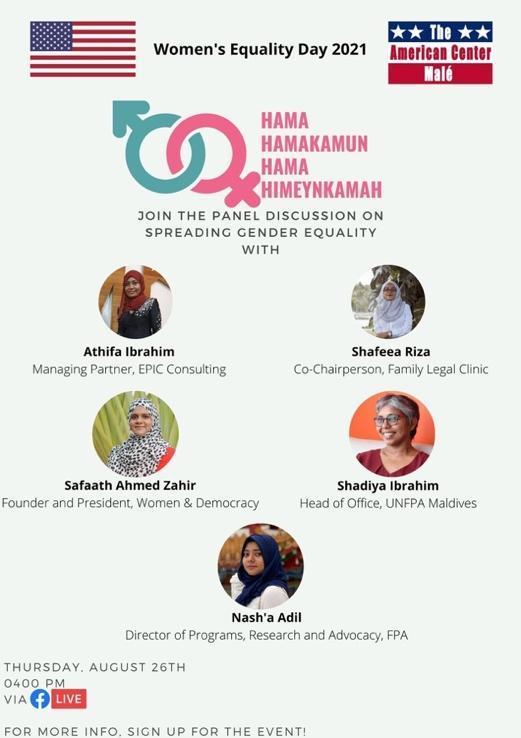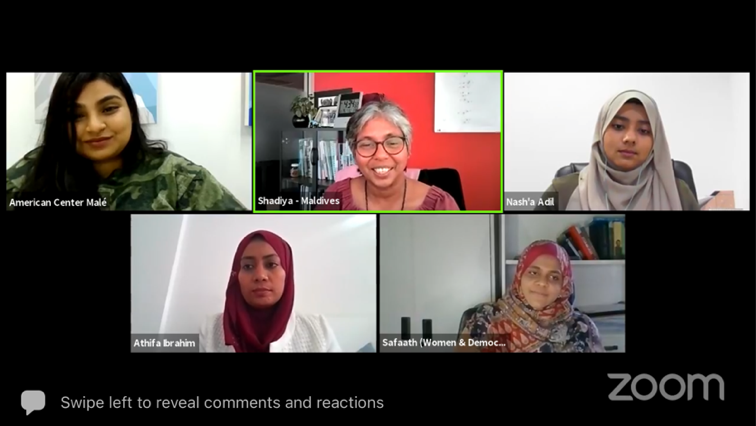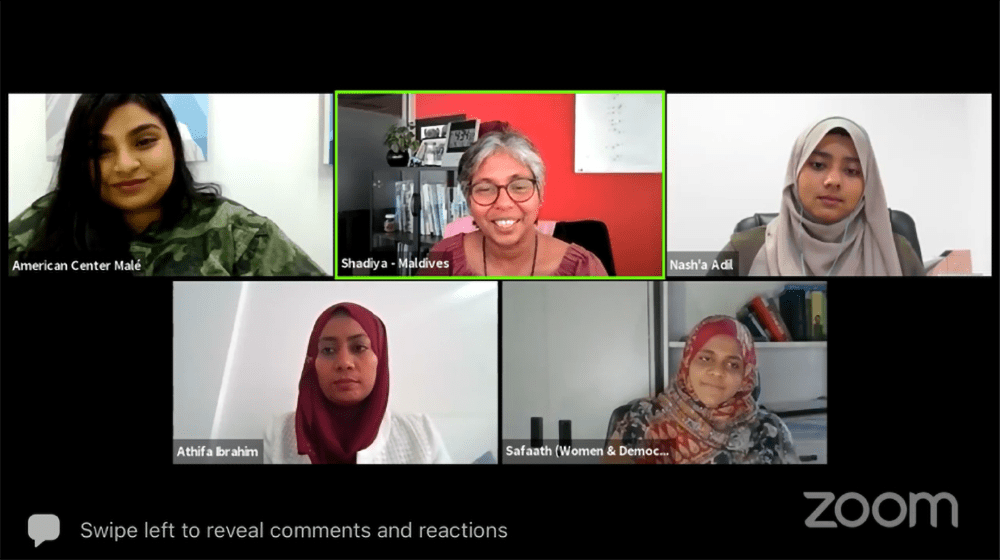UNFPA participates in the American Center panel discussion on the U.S. Women’s equality day held in the Maldives

The UNFPA in Maldives strives towards advocating for gender equality to address the unfinished business of the International Conference on Population and Development (ICPD) and Sustainable Development Goals as well as the upcoming 7th country programme. UNFPA continues to convene and work with local CSOs, government agencies as well as international bodies to implement awareness campaigns and advocate for gender equality, women’s rights and empowerment. It is through dialogue and awareness that UNFPA believes, we all can contribute to positive norm changes in our society to achieve bodily autonomy as well as sexual and reproductive health rights. Social constructs regarding gender, can contribute to harmful practices such as child marriage, female genital mutilation (FGM), and sexual exploitation. It is also concerning that many more women and men believe FGM is a practice in Islam, therefore permissible for young girls. Such violence against women and girls, as well as the negative stereotypes associated with them contributes to gender inequality. On the 26th of August Ms. Shadiya Ibrahim, Head of Office of UNFPA Maldives, took part in the Women’s Equality Day panel discussion held by the American Cent
Important points were brought to the fore regarding social norms pertaining to gender within the Maldivian context, during the discussions that were attended by four other

Anecdotal evidence suggests, most women do not receive an equal amount of pay compared to their male counterparts. It is regrettable that most women and young girls in the Maldives still have to adhere to restrictive behaviours, in caring roles and subordinate positions. It positions the woman as subservient and below that of a man. Such norms are idealised and buttressed by everyone of us in the society. Therefore, as discussed in the panel, it is up to each and every one of us to break down such regressive ideas.
Sexual reproductive health and rights are one of the most fundamental rights that influence choices and decisions growing up - from puberty to adulthood and beyond. The right decisions on when to marry, whom to marry, if and when to have children and how many are life choices that will impact autonomy, education, income generation
The sexual and reproductive health rights of young people, especially those that are marginalised have been lagging behind in the Maldives. A large number of young people are tech savvy and spend time on social media. Where there are digital abuse, grooming and violence stemming out from these virtual spaces. Shadiya also mentioned how sexual abuse and coerced sexual practices amongst students in grades 8-10 is very high. This coupled with low contraceptive knowledge and use amongst young people can result in more harm. Moreover, In the Maldives, because pregnancy outside wedlock is seen as a bad thing, the children and young mothers do not have the equal opportunities, making it a challenge for generations.
UNFPA continues to work with stakeholders to promote gender equality in all spheres and to reduce gender based violence and harmful practices such as FGM against women and girls. We hope to take part in similar discussions in the future, to catalyse meaningful change and create conversation around these issues that are often overlooked.


